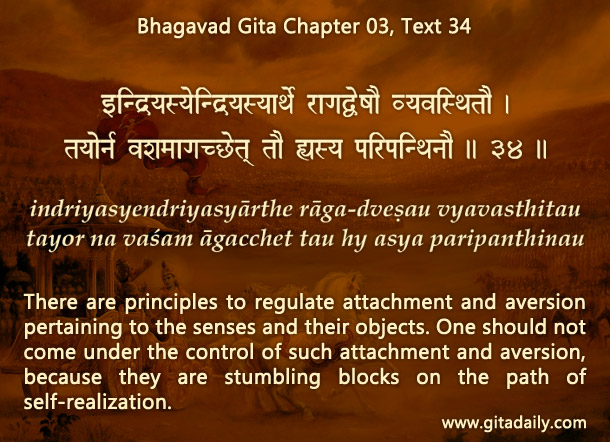Suppose we are living in a house where the doors suddenly creak open and bang shut, and lights randomly turn on and off. Suppose we come to know that we are sharing that house with someone disruptive. Then we will negotiate with them to live as peacefully as possible.
If we compare our body to our house, then we are not our house’s master or even its sole occupant. Residing with us is our mind, which is filled with innumerable impressions. These impressions make us attached to some things and averse to some things. Impelled by these impressions, various moods often arise within us, without our intent or even our consent. Due to such moods, we often fail to stick to our various resolutions to improve ourselves. Becoming disheartened, we may stop making resolutions and passively drift with our moods. If we cave in like this, we become slaves in our own house.
Thankfully, we have a better option; we can negotiate with our mind’s moods. As in any negotiation, we need to give something to gain something. We may agree to do something we feel good about, just to get ourselves to do something important for us, even when it doesn’t feel good.
For negotiating effectively, we need to know what we can give and what we can’t give. Our inner impressions can be classified into two broad categories: our basic psychophysical nature – ministerial, managerial, mercantile and mechanical – and our various human weaknesses: lust, anger, greed, envy, pride and illusion. The Bhagavad-gita recommends that we accommodate our basic nature without repressing it (03.33), but regulate our human weaknesses without pandering to them (03.34).
By thus learning to negotiate with ourselves, we can bring out our best.
Think it over:
- How are we not the masters in our own house?
- How may we become slaves in our house?
- How does the Gita guide us for negotiating with ourselves?
To know more about this verse, please click on the image
Explanation of article:
Podcast:


our life is in the custody of GOD